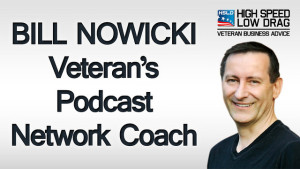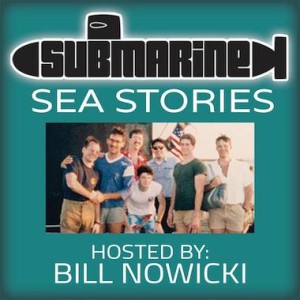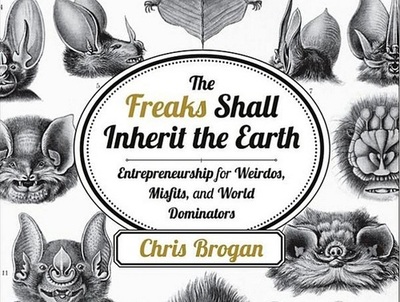
This post is based on the podcast – Bill Nowicki | Veteran Podcast Coach.
Welcome to High Speed Low Drag, the podcast for veterans and soldiers transitioning into the civilian world.
War veteran John Lee Dumas interviews other veterans who are crushing both business and life, revealing the path they took to achieve outstanding success. Veterans, are you prepared to ignite?
John: Veterans, are you interested in owning your own business? Join me, Antonio Centeno and Tom Morkes, all successful entrepreneurs and veterans, as we talk about what it takes to build your own business from scratch by leveraging the skills you developed while serving your country. And you’ll have the support of a community of veterans that are committed to helping you succeed. Visit highspeedelite.com. That’s highspeedelite.com.
High Speed Nation, John Lee Dumas here and I am fired up to bring you our feature guest today, Bill Nowicki. Bill, are you prepared to ignite?
Bill: I am, John.
John: All right. Bill was a stuck 50-something engineer working in the commercial nuclear power industry. He decided to find his voice through podcasting by interviewing fellow submarine veterans. Now Bill helps others tell their story and find their voice through coaching in a veteran’s podcast network. Bill, I’ve given High Speed Nation just a little insight. So share a more about you personally and then expand upon this.
Bill: Great. Yeah. I grew up in a large family in New Jersey, middle child. Education wasn’t that important to me so I ended up working at Friendly’s, which I’ll go into a little bit later when I talk about my military background. But I ended up in the military and then, as you stated, I am in the commercial nuclear industry. But I also would like to talk about — That’s a little bit dated. I’ve started to help transitioning vets and I created a book with six common mistakes that they make. And I’m going to provide that free and I’ll go into that during the interview. But I’m really excited to help transitioning vets and I’m really excited to be on your show.
John: Well, Bill, we’re excited to have you here because there’s a lot of people that find themselves in a very similar situation to you. They are in their 40s, 50s, 60s, and they’re just like, “You know, that post military career just isn’t really something that’s stoking my fire, lighting my flames.” You tell a really inspiring story about that, so I’m excited to share that in more. But before we do, Bill, we always start with a success quote. So share that with us and why you chose it.
Bill: Right. Well, I chose Bruce Springsteen’s “Badlands.” It’s a song you’re probably too young to remember. There’s a part that talks about: “Honey I want the heart, I want the soul, I want control right now. Talk about a dream, try to make it real. You wake up in the night with a fear so real. You spend your life waiting for a moment that just don’t come. Well, don’t waste your time waiting.” I love that.
John: That’s powerful though. Share why you love it and how it applies to our chat today.
Bill: Yes. Well, when I was in the Navy, I was in the nuclear power program and part of that program is you actually have to operate a plant. And I would drive — We were working 12-hour days, both days and nights, and it was up in Ballston Spa in New York and it was a cold day in March. We were driving up and I had my tape player and I popped in my Bruce Springsteen tape, whenever I need a little bit of motivation, because it was one of those things where it’s very difficult, complicated. If you screwed up, something really bad could happen. That just busted through my doubts and I was able to start to transform my life through that song. I kept that with me.
John: So, that’s powerful. And I just love how music and words and quotes can really take us to a place of inspiration, of motivation, of passion. That’s just another example of how you’ve done just that. And, Bill, what I’d like to do now is do just what you alluded to during the intro. Go to your military time and talk about a story of you, Bill Nowicki, in the military. Tell us what you consider your most pivotal moments. What’s that story?
Bill: Yeah. That happened early on. Like I said earlier, I was an ice cream scooper in Friendly’s. In fact, they wouldn’t even let me work the grill. I was not the best with my hands and all that kind of good stuff. So all I could be relegated to is the ice cream scoop. But anyway, I decided to check out the military. I filled out some forms. And the next thing I knew, I had signed up for six years in the Navy nuclear power program.
 I ended up on a fast attack submarine in the Minneapolis-Saint Paul during the height of the cold war and it was a transformative experience. It really helped me to realize that my life was going to be more than what I had envisioned before I went in the military. And the military really gave me that feeling that I got something more in between my ears than what I thought previously and I can really be something that I’m proud of, proud to be and proud to serve and I can help transform my life through it.
I ended up on a fast attack submarine in the Minneapolis-Saint Paul during the height of the cold war and it was a transformative experience. It really helped me to realize that my life was going to be more than what I had envisioned before I went in the military. And the military really gave me that feeling that I got something more in between my ears than what I thought previously and I can really be something that I’m proud of, proud to be and proud to serve and I can help transform my life through it.
John: Awesome stuff. And, Bill, what I really want to do now is pull out of that story a couple life lessons and a couple of things specifically in hindsight that you can look back. Of course, it’s 2020 now. But what really lessons can our listeners take away from that experience in your life?
Bill: I mean, submarine is a great place to learn because you’re put on basically a large tube with 100 guys and you have to get along, you have to deal with things. There was no hiding from people. There was no hiding from issues. You figure out people pretty quick what their strengths and weaknesses are. And that submarine service really provided that for me. And I used that and I became a manager and managed quite a large number of people. And I use that every day. It really was something that was cemented in me and I love to do it.
John: So you loved the time in the submarine, which to some people like myself who spent our time in a tank — I mean, I’m used to confined areas. The tank in the military, the M1A1 Abrams is not that large. It’s a pretty cozy little place especially for the driver. I mean, you are literally wedged into the front of that thing. You don’t have much room to breathe let alone move.
But I will say there have been a couple of times — I love out here in San Diego, Bill, and there are some great naval warships. And on those warships, specifically the USS Midway, there’s a submarine that you can actually walk in and tour around in. And when I was doing that, I was like, “Man.” It is really hard for me to picture being thousands of feet under water in this tube right here. Was that a struggle for you to adjust to?
Bill: It was just from the fact that you know you had to be on, you had to give your A game at all times because, probably similar to a tank, but either you all came out alive or you’re all dead. We were all going down together. So that was always in the back of my mind. But when you’re 20-something years old, it’s really not that important. Plus, if you think about a submarine, there’s no visual anything. Submarines have hit under water mountains and other objects and things like that.
You just can’t anticipate it and you just kind of dealt with it. But one of the things too, how it affects your psyche, is you don’t have a lot of new experiences and I wasn’t ready for that. When you don’t see the sun and the leaves and just see the wind blowing, over time that really gets on you. So what I started doing is reading books. And I had up until that point really hadn’t done that. That was another part of the transformation I had gone. So I would read books about the outdoors and all that kind of good stuff just to give me some new experiences. And that worked into the story telling stuff that I love too. I just love telling stories and reading stories and hearing stories. That all works together too.
John: That’s powerful. That’s a good visualization that the sun, leaves and the breeze that sometimes we all take for granted. I mean, here I am in San Diego trying to close my shades right now because the sun is blasting in through my bay windows and I’m like, “Ugh.” I mean, you would have died for this after months down in the submarine. But it’s just that whole perception. It is reality type thing. What I’ll let you do now, Bill, is move forward and move forward into your transition out of the military. Take us to that story and share with us some obstacles, challenges and struggles that you faced while going through that.
 Bill: Right. When I got out, like I said, I went to college. I ended up at Virginia Tech, which is a very rigorous engineering school. And I had plans, many plans. I had money. I had all these things ready to go. And within nine months, I was out of that money. We were down to one car, one salary. My wife, who I had met before I had gotten out, was our sole provider.
Bill: Right. When I got out, like I said, I went to college. I ended up at Virginia Tech, which is a very rigorous engineering school. And I had plans, many plans. I had money. I had all these things ready to go. And within nine months, I was out of that money. We were down to one car, one salary. My wife, who I had met before I had gotten out, was our sole provider.
And just a quick story. We were really struggling with money. And we were going through the budget, is there anything we can cut back? And my wife still brings up this story 28 years later. But I said, “Jenny, is there anything else, anything you buy every day?” And she goes, “Oh, yeah. I have a diet Coke every day and it’s 35 cents or whatever it was.” And I said, “Listen, you can’t have that anymore.” And she went to work and crying and the girls bought her a diet Coke every day or whatever. I mean, it got bad.
John: That’s fascinating. Go ahead.
Bill: So, when I got near graduation I was ready to interview. I had really good grades but I also had a three-month old. My wife and I decided to have a baby before we got out. But I had interviewed with Intel, NASA, Motorola, Alcoa, but I missed the opportunities to really blow folks away during the interview. Looking back, now that I have the perspective as a manager, I know now what I missed. And that’s one of the reasons I created the book, is to really help vets.
But interviewing skills is critical for vets in understanding what you’re really trying to accomplish in that interview and how you’re trying to communicate. And just a quick story there. I hired this kid in school, just was getting out of college, had no experience. But I sat down with him at lunch. He was some guy’s nephew at work. One thing struck me that I had to pull out of him and he didn’t really communicate which is he had all the right things an engineer needs to have. He’s a good tinkerer, he loves solving problems, and all those type of things.
What he didn’t have was the experience. So I did some mapping from what he had done in college over to what I needed and I found the perfect job for him. I got him in to the plant and he helped us out tremendously. He made some of the projects we were working on a real success, helped engineers out. And now he is working full time at the plant and he loves his job. But that was something that, again, looking back, he just needed that chance. He had all the pieces. He just hadn’t put them together yet.
John: So, High Speed Nation, Bill is very generously going to be offering this book that he is referring to you, High Speed Nation, the veterans, to help out. When it comes to stuff along these lines, that just we don’t have the skills when we transition out. So, Bill, can you quickly just share maybe one really cool tip, something that’s going to be going in an interview and the kind that just goes across all boards, not just engineering, what would that interviewing tip be?
Bill: Yeah. You should come in with the thought of, in this interview, that you’re going to try to solve the person’s problem that’s going to hire this person. I would do, as much as I could up front, talk to people that work at the company, find out where some issues are, try to put yourself in the manager’s shoes and come in and, if you could, actually come up with solutions to those problems. So you might say, “We’re having issues with tracking a project. We have this software tool. You know, I have some experience with a similar software tool and here’s what I would do for you.” And you would start removing barriers to them not hiring you. So by the time you’re done with it, you’re a shoo in.
John: That’s, I mean, High Speed Nation, priceless stuff. I mean, if you can go in with that kind of knowledge pre-armed and just blow your interviewer away, I mean, you might as well just walk out with the job right then and there. So, Bill, let’s move forward now because, listen, you’re the kind of guy that just has these ideas. Like you said, you’re a tinkerer. I mean, you just had that engineering mind. You’ve had these epiphanies, these light bulbs that have gone off at various points in your life over and over again. But if you could just pick out one story of one aha moment, of one light bulb that went off, what would that moment in time be? Walk us through that.
 Bill: Right. Two and a half years ago, I moved to Atlanta. I took on a new job. Before that, I was a manager. I had 67 people working for me. And then I moved here. And I’m an individual contributor but the whole notion was I’m going to change the world and do all these great things. Well, what I really missed was interacting as a manager with a bunch of people, and I’ve never had that feeling.
Bill: Right. Two and a half years ago, I moved to Atlanta. I took on a new job. Before that, I was a manager. I had 67 people working for me. And then I moved here. And I’m an individual contributor but the whole notion was I’m going to change the world and do all these great things. Well, what I really missed was interacting as a manager with a bunch of people, and I’ve never had that feeling.
So, I got with a coach. I hired this guy and we sat through and went through my personality and all this type of things that you see in the surface and you can say, “This is a bunch of hogwash.” But when we went through the exercise, he started teasing out things about myself I didn’t realize. One was, he said, “Talk about your perfect day.” Basically, my perfect day was on a sailboat. I could see the sun. I could feel the sun against my neck and I could watch the wind blowing through the sails and all that kind of good stuff.
And then he said [0:15:23] [Indiscernible] I’m cooking in a grill. I could smell the fish. I have an aromatic smell coming up through the grill and da, da, da. And then I described myself as an extrovert. And he says, “You know, your perfect day, you’re kind of by yourself.” And I was like, “Ah.” And then I started describing some more things. It came down to I really want to help people. I really want to get out there and interact through media. I love videos and talking and listening and doing all that kind of good stuff and telling stories.
And I started putting that together in a package and that’s when I decided right then. I was like, “Man, I got to do my own podcast.” And that’s when I created Submarine Sea Stories, which has just been such a blessing for me and has given me so many opportunities.
John: Well, let’s talk on that now because I want to bring things to present times but I’d love for you to share the creation of that. Because that’s just outside of the box from the other paths that you were on. And it’s really a fascinating pivot and really addition to everything that you have going on in your life. So what is just really firing you up about that specifically and why?
Bill: Yeah. Well, I know you know Meron Bareket and his Inspiring Innovation. I listen to his podcast. I contacted him and I told him about my idea. And he said, “Hey, why don’t you? I can help you out.” I just kind of fell into it. He asked me when am I going to launch? And I said April 1st. And I had no clue I was going to get there. But it’s a whole entrepreneurial mindset I started to embrace.
Then the real fun part started. I interviewed guys I hadn’t seen in years, 25 years or longer, 30 years. And it made me feel so good. I’ll give you a quick example. Guy Bob Burchfield, he was in my wedding. We were so close in the sub and he was just the guy to be around. I lost touch. He became a plant manager in Combined Cycle Unit in Minnesota and he was always busy. I was texting him, trying to get him, “Can I interview you? Can I interview you?”
And he finally texted me because I had been badgering him. He said, “Let’s get it over with, Bill.” So I got him on the show. And within five minutes, the years had melted away. We were laughing like we were kids again. And that, to me, was the power of podcasting and connecting with people and all those things I had found during my coaching session that I brought all together in one instant. This is something that is important and is fun to do and people will gravitate toward it. And it’s been real success for me.
John: Well, I commend you for finding this medium, Bill. As you know, I’m a huge proponent personally of podcasting. I have another podcast called Entrepreneur On Fire, which is a couple of years now, which has been quite a blast, just passed my 750th episode there. It shows what can happen when you do a daily show. It happens pretty quick.
Bill: That’s right.
John: So, Bill, let’s transition now into the lightning round. Because I really want you to share some incredible resources and some mind blowing answers. Sound like a plan?
Bill: It sure does.
John: What was the most difficult adjustment that you had to make to the civilian world?
Bill: Changing my mindset. I was highly trained. By the time I got out of the Navy, I knew every light, every switch, every blink. I knew it. I didn’t even have to look at the panel. I knew what was going on. And then when I became a 25-year old college freshman taking English Comp, I quickly realized that I had to change the way I approach that. I didn’t have to look at myself as a floundering freshman. I saw it as, “Hey, I’m trying to transition my life and I got to get my mind around this thing.” And that’s what I did, and it worked. That was just periods that I’ve done the rest of my career in life.
John: What business advice would you pass along to those that are making the transition now?
Bill: Yeah. I think it’s a great idea to get started early. So you don’t want to wait until there’s two months from getting out and then say, “Oh, I got to really get on it now.” Start early. Start making connections. Start asking for help. Get a support structure.
Because that’s the other thing about being in the military. You are surrounded by people that are like-minded. You know them well. And then that’s all gone. So you have to think about creating that new world for yourself before you transition, which takes time.
John: Share one of your personal habits that you believe contributes to your success.
Bill: I think and I know you, Meron Bareket, and the other folks that I’ve dealt with in the entrepreneurial online world is: Be generous. And a quick story on that. I created a video for a local business, a restaurant I really like. And I did it for free just to see this if this would be something I want to do at Wikimedia.com. The guy ends up having connections. And before I knew it, I ended up in Frankie Valli’s dressing room shaking his hand and spending 20 minutes with this musical legend.
John: Oh, what a night.
Bill: That’s exactly right. It was so much fun.
John: That is epic. High Speed Nation, it’s all about this. This is how I break it down. You can either have a mindset of scarcity where you think that there’s a certain size of the pie and if somebody takes a bigger piece, like if Bill gets ten downloads today, that means that I can only get eight. That’s the mindset of scarcity, that there’s only so much of the pie. Or you can have which Bill has, which I have, which Meron has, the abundance mentality, where you just realize that, “Hey, this is a wide open loving caring world.”
And the more that I give to this world, the more that results in this world. So by giving, you’re actually creating. And that’s just so powerful. Bill, what’s the biggest generalization of being a vet, if any, that you’ve had to overcome in the civilian world?
Bill: I think a lot of folks think vets are rigid and need a lot of direction and that applies especially to enlisted guys. I think there’s some of that because you’re being controlled in the military and they want to execute the mission. But I think that’s a big myth. I don’t like it and, I think, just with a little bit of tweaking here and there, that can easily be overcome.
John: What book, Bill, would you recommend to our listeners.
 Bill: Yeah. I love the Chris Brogan book, The Freaks Shall Inherit the Earth. I think it’s great. And it shows you, and I know you talk a lot about this, John, but the future is going to be a lot different than the corporate structure we have now and being a freak and be able to do your thing and do it better than anybody or close to it, then you can really open up doors for yourself. I think that’s a great way to look at life.
Bill: Yeah. I love the Chris Brogan book, The Freaks Shall Inherit the Earth. I think it’s great. And it shows you, and I know you talk a lot about this, John, but the future is going to be a lot different than the corporate structure we have now and being a freak and be able to do your thing and do it better than anybody or close to it, then you can really open up doors for yourself. I think that’s a great way to look at life.
John: I could not agree more. Bill, if you woke up tomorrow morning and it was the day after you had transitioned to the civilian world and you still have all the experience and knowledge that you currently have now, what would you do in the next seven days?
Bill: I tell you, that’s a great lead in for my book.
John: Let’s hear it.
Bill: Yeah. So, I think, I would start creating that network around me by getting to know people, start, like I said, doing things for them, helping them out, so you can start building that network. I would start leveraging connections that I have in the military. I would start learning interview skills. And really, I haven’t mentioned this yet, but marketing is a big problem for vets because we’re humbled people. We’re not used to putting ourselves out there. Well, that’s got to change if you’re going in the civilian world because there’s a lot of other folks that you’re competing with.
And the other thing, the big thing is don’t underestimate your abilities. Don’t look at a job description and say, “I can’t do this. I can’t be a project manager.” You can do it. You just have to know how to translate. And that goes into what I think we should do too is map your skills, your current skills to the job skills that you really want to do and start making those connections. And there’s so much information out on the internet that you can start understanding what the job description means long before you go in for the interviews. So those are just some of the steps I would take.
John: Well, Bill, I couldn’t agree with those steps more. And I would love if we could end today literally on fire with you sharing one parting piece of guidance, the best way that we can connect with you, then we’ll say goodbye.
Bill: Great. Yeah, you can go to transitioningvets.com. And you can download my free book and we can go from there. Hopefully, we can do some coaching and different things and help folks out. I would just love it. And like I said, I just love to help people. And I would love to help some of your listeners.
John: Well, High Speed Nation, you are the average of the five people you spend the most time with and you have been hanging out with Bill and myself today. So keep up the heat. And, Bill, thank you for being so incredibly generous of your time, expertise and experience. High Speed Nation salutes you and we’ll catch you on the flipside.
Bill: Very good. Thank you so much, John.
Veterans, your education doesn’t stop here. Go to highspeedelite.com to join the exclusive veterans’ mastermind that will give you the unfair advantage to succeed in both business and life. We have dozens of training courses, HD videos, a private Facebook group, and the chance to interact daily with John and other successful veteran entrepreneurs every month on live hangouts and webinars.
High Speed Elite is more than a mastermind. It’s your ticket to the land of success.
Are you prepared to ignite? Go to highspeedelite.com today to find out more.
